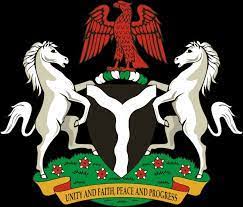FG To Provide 4bn Meters to Nigerians In 2nd Phase Of NMMP

The Federal Government of Nigeria has announced they will be providing up to four million meters to Nigerians in the second phase of its National Mass Metering Programme (NMMP). The move is expected to drastically reduce estimated billing by the distribution companies (Discos).
A statement from the office of the Special Adviser on Infrastructure to the President, Ahmad Zakari, assured arrangements to commence the metering process have been completed.
The statement noted that the next phase of the initiative will ensure consumers are billed appropriately for the electricity they consume by installing meters free of charge in households and business premises that are currently not metered.
The Federal Government provided funding for the programme through loans from the Central Bank of Nigeria (CBN) to Discos. Meters are provided to customers free of charge. This is indeed unprecedented and has so far led to the tremendous success recorded so far.
The first phase (Phase 0) was launched later than expected in December 2020 due to the COVID-19 pandemic, with a target of one million meters across the country. To date, 750,000 meters have been delivered to Discos in just under eight months.
This is a marked improvement in terms of the speed of installation of meters compared to its predecessor (Meter Asset Provider – MAP programme) which recorded 350,000 meter installations in just over 18 months. Essentially the Nigerian meter industry has increased local installation capacity by a multiple of five.
In preparation for the second phase (known as Phase 1) of the National Mass Metering Programme, the Nigerian electricity sector regulator, NERC, has conducted extensive consultations and stakeholder management and has revised its metering guidelines. This phase will provide up to four million meters and shall also use a similar financing mechanism as phase.
One of the key successes of the NMMP initiative is how rapidly it has increased private sector interest in investing in the local meter assembly, manufacturing and installation space.
In addition to the springing up of new factories such as the Quantum meter assembly plant in Lagos and the Smart Meter assembly plant in Kaduna, there has also been refurbishment and upgrades of some metering plants that had also fallen into disrepair such as EMCON in Kaduna.
This development in the meter assembly space is driven by the Central Bank’s commitment to support local meter assembly/manufacturing as only local companies will be allowed to participate in the bidding process for the upcoming phase of the programme. This promises to increase the job creation impact of the program, which has already attained impressive heights with over 10,000 direct jobs created as a result of the phase 0 of the programme.





